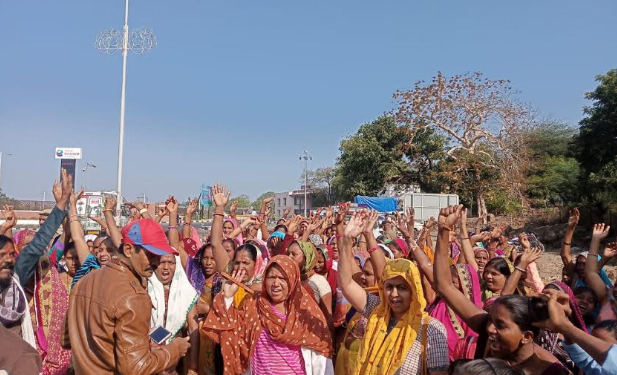NE NEWS SERVICE
RAJPIPLA, JUNE 8
At least 11 tribals, including five women, were arrested for protesting against the proposed development of a parking lot near the Statue of Unity in Kevadia village in the Narmada district of Gujarat, police said on Tuesday.
The incident occurred on Sunday afternoon when at least 20 tribals opposed the ongoing survey of the area being conducted by the Sardar Sarovar Narmada Nigam (SSNNL).
Among them, two women protesters – a 60-year-old and her 30-year-old relative – stripped themselves partially, an official said.
Villagers were opposing the upcoming parking lot near the 182-metre tall Statue of Unity, which has emerged as a major tourist attraction.
“The incident took place on Sunday afternoon following which an FIR was lodged against 20 villagers who were part of the protest. 11 of them, including five women and six men, were arrested on Monday,” said Kevadia police station inspector PT Chaudhary.
While protesting against the survey work, the villagers claimed the land on which the local authority had put up a fence for the development project belonged to them, and its acquisition was illegal.
“Some locals started protesting when the survey work of land belonging to the SSNNL was underway amid heavy police deployment. They claimed the land belonged to them and the authority had no right to conduct a survey. In protest, two women stripped partially. They were whisked away by policewomen present there,” Chaudhary said.
At least 24 police personnel were present at the spot where the survey work was being carried out, he said.
“All such survey works in villages around the Statue of Unity are being carried out with heavy police deployment as the locals have been protesting against them,” Chaudhary said.
The accused persons were booked under various sections 143 (unlawful assembly), 186 (obstructing public servant in the discharge of duty), 447 (criminal trespass), 294 (singing obscene song, ballad or words, in or near the public place), 269 (act likely to spread infectious disease dangerous to life), of the Indian Penal Code (IPC) and the provisions of the Disaster Management Act and the Epidemic Diseases Act, he said.









